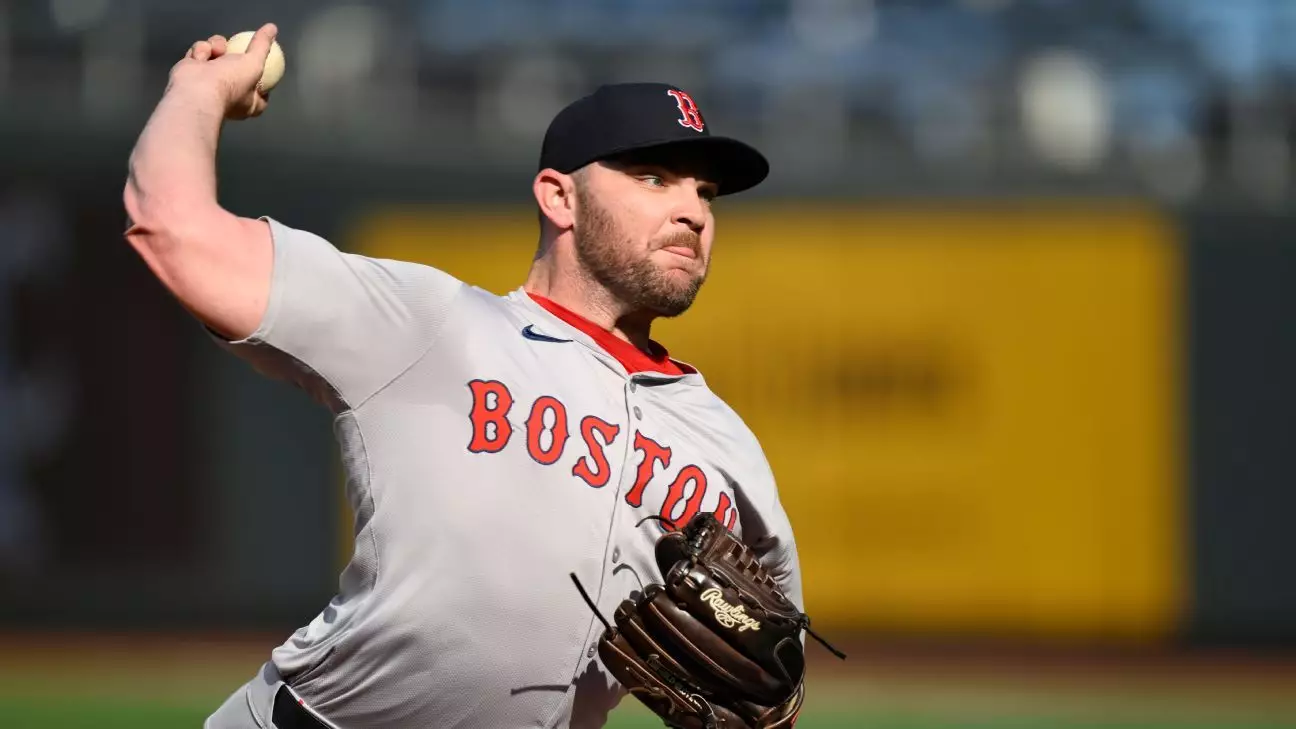In our society, athletes are often idolized to the point that their very existence becomes a point of scrutiny for countless observers. This phenomenon has escalated in the digital age, where social media operates as a double-edged sword, providing a platform for both adoration and vitriol. Recent events surrounding Red Sox reliever Liam Hendriks illustrate this unnerving reality. After Hendriks faced a wave of death threats directed at him and his family, he bravely took to social media to voice his outrage. In doing so, he not only defended his right to live without fear but also provided a rallying cry for athletes everywhere who have endured similar bullying in silence.
Alex Cora, the Boston Red Sox’s manager, empathized with Hendriks, capturing the essence of the athlete’s dilemma—public figures are expected to smile and take the punches, both literally and figuratively. Cora’s insights resonate deeply in the current climate; as he points out, the casual cruelty that flourishes in the anonymity of the internet can create a toxic environment for players, suffocating their mental well-being. While it’s essential for fans to express their passion and opinions, there’s an immensity of difference between critique and threats, which should never be conflated.
The Desensitization of Empathy
The modern-day athlete embodies a unique paradox—they are both celebrated and vilified within the same breath. Fans who passionately engage in sports often forget that behind each player is a human being, complete with flaws and fears. The normalization of online harassment has, in part, desensitized society to the impact of such threats. Hendriks’s revelation brought the imminent threat lurking behind the screens into stark focus. Death threats are not just idle chatter; they signify profound rage that can genuinely endanger lives.
Many might argue that freedom of speech allows any opinion, no matter how damaging, to fester. However, this sentiment becomes blatantly unacceptable when such opinions cross the line into outright threats. The cumulative effect of harassment can severely affect players’ mental health, leading to anxiety, depression, or even compromising their performance on the field. Hendriks’ public declaration is a valid antidote to this behavior—speaking out breaks the stigma around mental health issues facing athletes who otherwise live under the spotlight.
A Call for Change
The larger question that arises from these incidents is fundamentally about accountability. Who is responsible for this public discourse? Is it the league, the platforms, or the fans? Cora’s reflections on the dangers rooted within the current state of sports fandom highlight the urgent need for reforms. Given that gambling intersects with sports, the stakes have significantly risen. Fans often project their frustrations onto players during losing games, mistaking their emotions for justifiable rage.
As leaders within sports organizations, Cora and others must advocate for stringent regulations governing fan interactions on social media. It’s disappointing to think that the future of sports could be marred by an inability to protect its key players. Organizations must not only monitor social media activity that crosses the boundaries of decency but also engage with players on mental health initiatives that ensure their safety both inside and outside the sport.
Turning Pressures into Purpose
Despite the chaos that comes with public scrutiny, there lies an opportunity to reshape how society views athletes. Hendriks’ decision to speak out could serve as a watershed moment within professional sports, encouraging more players to share their experiences. By vocalizing their struggles, they can illuminate the detrimental repercussions of online hate culture. By turning pressure into purpose, they can forge a path for future athletes—one where vulnerability is not seen as weakness but rather as an avenue for advocacy.
Ultimately, the culture of fear that surrounds professional athletes in the age of social media must be dismantled. Society must collectively advocate for a future wherein compassion triumphs over cruelty, and celebrities can thrive without looming threats. If these athletes can weather the storm of public sentiment, they should be met with understanding rather than hostility. We cannot allow the shadows of social media to overpower the human element that makes sports so compelling.

Leave a Reply